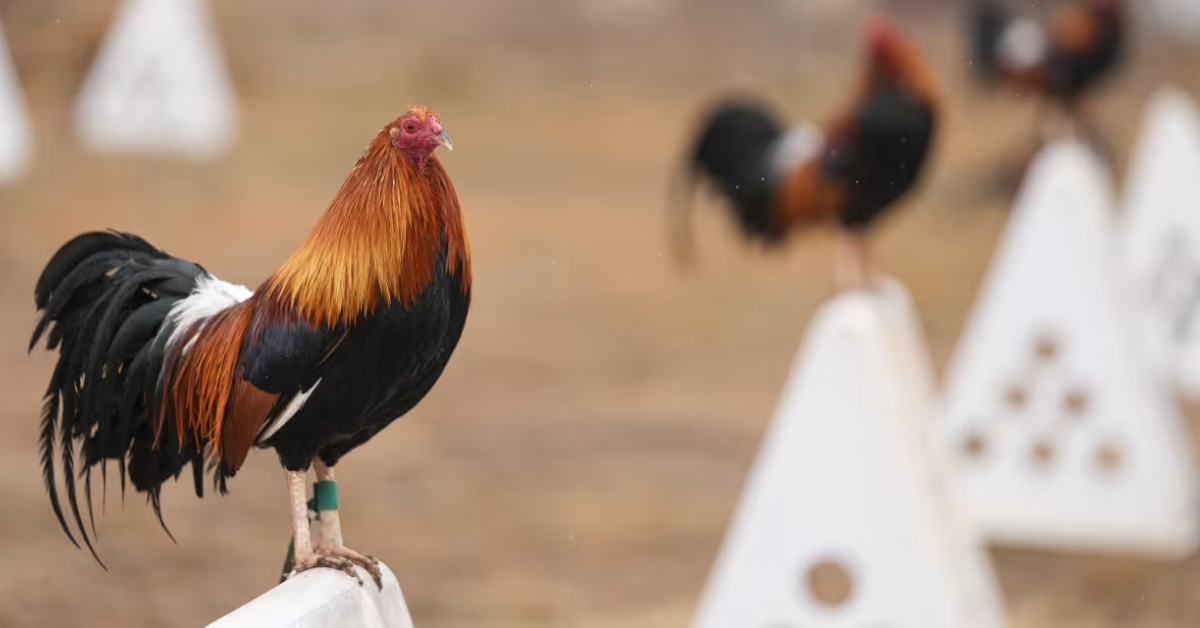
The recent news from Oklahoma has sent shockwaves through the local and national community. The head of the Oklahoma Gamefowl Commission has been charged with viewing a cockfight, an event that is illegal and controversial. This unexpected development raises serious questions about the legality and ethics of those who oversee gamefowl activities.
Cockfighting, which involves two roosters fighting for entertainment and gambling purposes, is banned in most parts of the United States, including Oklahoma. Despite this, the practice continues underground. When a public official like the head of the Oklahoma Gamefowl Commission is implicated, it draws widespread attention, showing the challenges in enforcing animal welfare laws.
Who Is The Oklahoma Gamefowl Commission Head?
The Oklahoma Gamefowl Commission is responsible for overseeing legal aspects of gamefowl breeding and promotion in the state. Their job generally includes promoting the breeding of fighting birds for exhibitions, not fights. The identity of the official involved has been confirmed by local sources, highlighting the gap between the commission’s role and the alleged activity.
According to a report by The Oklahoman, the head was seen attending an illegal cockfight event, which is a serious violation of state laws. This not only brings negative attention to the commission but also questions the integrity of leadership within this niche community.
What Is Cockfighting and Why Is It Illegal?
Cockfighting is a blood sport where two roosters are placed in a ring to fight, often to the death, for the entertainment of spectators who often bet on the outcomes. This activity is considered cruel and inhumane toward animals, leading many countries and states, including Oklahoma, to ban it outright.
The U.S. federal law, under the Animal Welfare Act, prohibits certain activities related to cockfighting. Most states, too, have their own laws against it. The law aims to protect animals from unnecessary physical abuse. While illegal, cockfighting persists as an underground activity, making law enforcement difficult and complex.
Legal Consequences for the Oklahoma Official
Being charged with attending a cockfight means the official faces serious legal action. In Oklahoma, such charges can result in fines, probation, or even jail time. It also risks the official’s career and reputation. Authorities have stated that they will investigate whether others were involved or if this points to a larger issue within the commission.
The case has sparked conversations on social media platforms and among animal rights groups that emphasize stronger enforcement against illegal animal fights. The incident highlights the importance of accountability, especially for officials who are supposed to regulate and uphold the law.
Wider Implications for Gamefowl and Animal Welfare
This case is a reminder of the difficulties in controlling illegal practices tied to traditional sports and hobbies. Gamefowl breeding is a popular activity in some regions, especially rural areas, and can have cultural significance. However, illegal fighting and gambling are harmful and conflict with animal protection laws.
Groups like the Humane Society of the United States actively campaign against cockfighting and offer education about animal welfare. Their efforts point toward the need for continued awareness and strict adherence to laws to prevent cruelty. You can read more about their stance at humanesociety.org.
What Can Young Readers Learn From This?
Young readers can understand that laws are made to protect not just humans but animals, too. It’s important to respect these rules and to question when those in power might break them. Standing for animal rights and supporting ethical practices shows care for all living beings and the environment.
The story from Oklahoma also shows that no one is above the law. Authorities across the U.S. are working to end cruel practices by charging those involved, making communities safer and more humane places. Being informed and responsible helps create a better society for everyone.









